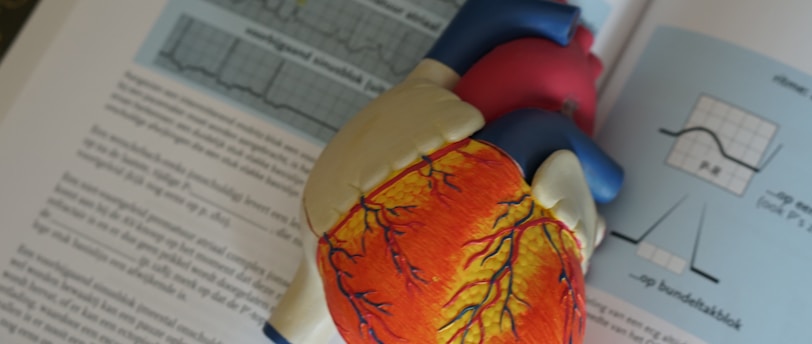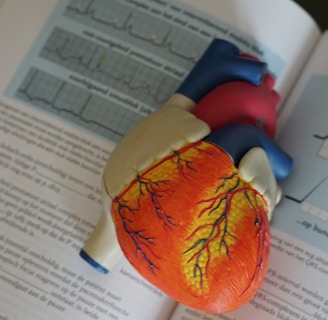50 Applied Physiology LAQ Type Questions for University Exams
50 Hard Level Questions for Applied Physiology Semester Exams
IMPORTANT QUESTIONS
12/15/20233 min read


50 Applied Physiology Long Answer Questions (LAQ) with Hard Difficulty Level
1. Explain the role of the renin-angiotensin-aldosterone system in regulating blood pressure.
2. Describe the physiological basis of acid-base balance in the human body.
3. Elaborate on the mechanisms of thermoregulation and its significance in maintaining homeostasis.
4. Discuss the physiological adaptations of the cardiovascular system during prolonged endurance exercise.
5. Explain the process of muscle contraction at the molecular level, highlighting the role of calcium ions.
6. Describe the neural control of respiratory muscles during various respiratory phases.
7. Discuss the physiological mechanisms underlying the baroreceptor reflex and its impact on blood pressure regulation.
8. Elaborate on the role of neurotransmitters in synaptic transmission in the autonomic nervous system.
9. Explain the concept of cardiac output and factors influencing its regulation.
10. Discuss the physiological mechanisms of oxygen transport in the blood and its relationship to exercise.
11. Describe the role of cytokines in the immune response and their impact on systemic physiology.
12. Explain the regulation of water and electrolyte balance in the body by the antidiuretic hormone (ADH).
13. Discuss the physiological effects of chronic stress on the endocrine system and overall health.
14. Elaborate on the process of muscle fatigue, including both central and peripheral factors.
15. Explain the physiological basis of the diving reflex and its implications for free divers.
16. Discuss the role of the pineal gland in the regulation of circadian rhythms and sleep-wake cycles.
17. Describe the physiological adaptations of the respiratory system to high-altitude conditions.
18. Explain the mechanisms of vasodilation and vasoconstriction in the regulation of blood flow.
19. Discuss the impact of aging on the cardiovascular system and strategies to mitigate age-related changes.
20. Elaborate on the role of the parasympathetic nervous system in digestive processes.
21. Explain the physiological basis of hormonal control in the female reproductive system during the menstrual cycle.
22. Describe the mechanisms of proprioception and its importance in motor control.
23. Discuss the physiological effects of prolonged bed rest on the musculoskeletal system.
24. Explain the concept of cross-bridge cycling in muscle contraction and its energy requirements.
25. Describe the physiological adaptations of the respiratory system in individuals with chronic obstructive pulmonary disease (COPD).
26. Discuss the role of nitric oxide in vascular physiology and its implications for cardiovascular health.
27. Elaborate on the physiological mechanisms of pain perception and modulation.
28. Explain the regulation of blood glucose levels by insulin and glucagon in the pancreas.
29. Discuss the physiological basis of ECG changes during different phases of the cardiac cycle.
30. Describe the neural control of gastrointestinal motility and its modulation by neurotransmitters.
31. Explain the physiological effects of hyperbaric oxygen therapy on the human body.
32. Discuss the role of the hypothalamus in the integration of autonomic functions and homeostasis.
33. Elaborate on the physiological mechanisms of renal filtration and reabsorption in the nephron.
34. Explain the concept of neuroplasticity and its implications for rehabilitation after brain injuries.
35. Discuss the physiological adaptations of the endocrine system to acute exercise stress.
36. Describe the role of adipokines in metabolic regulation and their impact on obesity-related diseases.
37. Elaborate on the physiological mechanisms underlying the diving response in marine mammals.
38. Explain the concept of muscle hypertrophy and the molecular signaling pathways involved.
39. Discuss the physiological effects of prolonged fasting on metabolism and energy balance.
40. Describe the neural control of blood pressure and the integration of baroreceptor signals in the brain.
41. Explain the physiological basis of the Bohr effect and its influence on oxygen release in tissues.
42. Discuss the role of the autonomic nervous system in modulating immune responses.
43. Elaborate on the physiological adaptations of the musculoskeletal system to resistance training.
44. Explain the mechanisms of action potential generation and propagation in neurons.
45. Describe the physiological effects of high-intensity interval training on cardiovascular fitness.
46. Discuss the role of the enteric nervous system in gastrointestinal motility and digestion.
47. Elaborate on the physiological mechanisms of bone remodeling and mineral homeostasis.
48. Explain the impact of chronic inflammation on cardiovascular health and systemic physiology.
49. Discuss the physiological changes in respiratory function during aging and their clinical implications.
50. Describe the role of gut microbiota in metabolic regulation and its connection to obesity.
